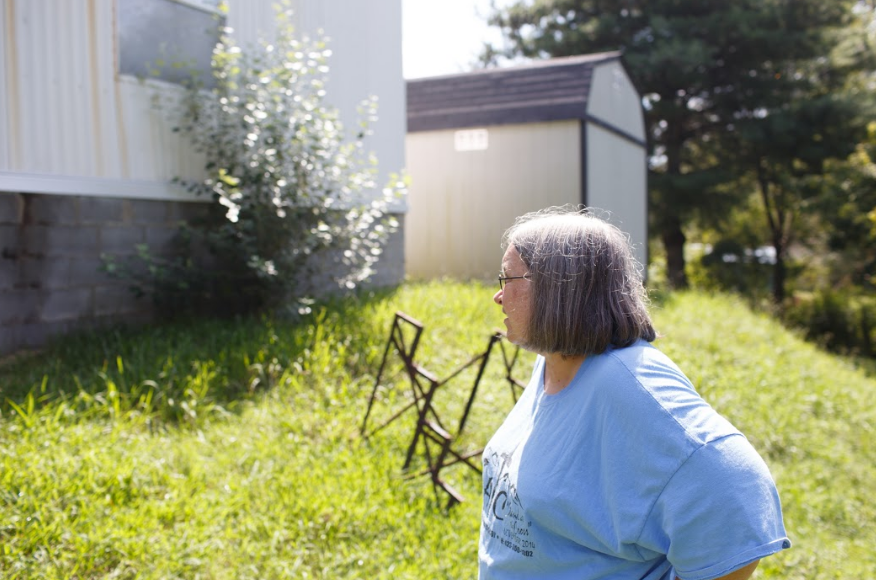Cleaning Up Coal Ash
For well over a century, power plants across the country have burned coal to generate electricity. And for just as long, leftover coal ash has been dumped in open, unlined pits near the power plant, usually located on a river or lake. Every year, U.S. power plants produce 130 million tons of coal ash, which is the second largest waste stream in the country after municipal garbage.
Coal ash concentrates the toxic heavy metals found in coal, including arsenic, mercury, lead and selenium. Stored in unlined, wet impoundments, coal ash has been leaking these toxics into our groundwater and surface waters for years. Sometimes these impoundments collapse — with disastrous results.
Yet government regulations for coal ash management are either non-existent or sparse, and there is little enforcement of the regulations that do exist. In North Carolina, this lack of oversight — and the complicity between state regulators, elected officials and Duke Energy — came to a boiling point in February 2014 when one of Duke’s coal ash impoundments spilled 39 million tons of ash into the Dan River.
Citizens living near North Carolina’s 33 coal ash impoundments — all of which have leaked — have fought for transparency from Duke and the state, and for cleanup of the pollution that threatens their property value, health and family. Their actions forced this issue into the headlines of news networks and to the forefront of environmental justice conversations in the United States.
Appalachian Voices stood with these communities as we worked for years to compel Duke Energy and the N.C. Department of Environmental Quality to excavate coal ash from all the North Carolina sites and dispose of it either in lined, dry landfills, away from waterways, or by recycling it for concrete or other uses, provided it’s done in a manner that protects public health and the environment.
On Jan. 2, 2020, North Carolina announced a historic settlement with one of the state’s most powerful corporations and polluters, Duke Energy. The settlement requires Duke to move nearly 80 million tons of toxic coal ash at six of its power plants to properly lined landfills onsite or recycle it.

Learn information about specific coal ash impoundments in the South, including health threats and safety ratings:
Additional Resources
Fact sheets, videos, links to academic research, and more
Sign Up to Act
Help us protect the health of our communities and waterways.
Latest News
Atlantic Coast Pipeline could face further delays
In a letter sent to the Federal Energy Regulatory Commission on Sept. 1, the U.S. Forest Service voiced concerns that the proposed route for the Atlantic Coast Pipeline could threaten several streams in the George Washington National Forest.
Revitalizing Appalachia from the ground up
In February, a bill was introduced in Congress that would expedite funding to clean up old coal mining sites and redevelop them specifically to foster economic growth. The RECLAIM Act is now in committee and the language is expected to change a bit in the coming weeks. As Congress considers those changes, lawmakers should look to communities impacted by the coal industry, in Appalachia and across the country, whose perspective is vital to the bill’s success.
Citizen action leads to closure of KD#2 mountaintop removal mine
After two years of pressure from citizens, West Virginia permanently halted mining at the KD#2 mountaintop removal coal mine. But the mine has already damaged land and water. This guest post features a statement from the Kanawha Forest Coalition.
Do-It-Yourself tips for energy efficiency: Heating & Cooling
Education is a key part of our work, and one way we are helping residents lower their energy costs is by creating and sharing some short videos with Do-It-Yourself energy efficiency tip. This video features John Kidda, founder and President of reNew Homes, Inc., in Boone, N.C., discusses programmable thermostats as a way to save on heating and cooling.
Energy bill acrobatics
For the Schmidt family of Tazewell, Tennessee, managing their budget is a balancing act, and one they have become very good at. But high electric bills–up to $300 in the winter–makes that balance tricky to maintain, sometimes leaving very little for emergency funds, much less for the home repairs they need that could actually lower their energy use.











